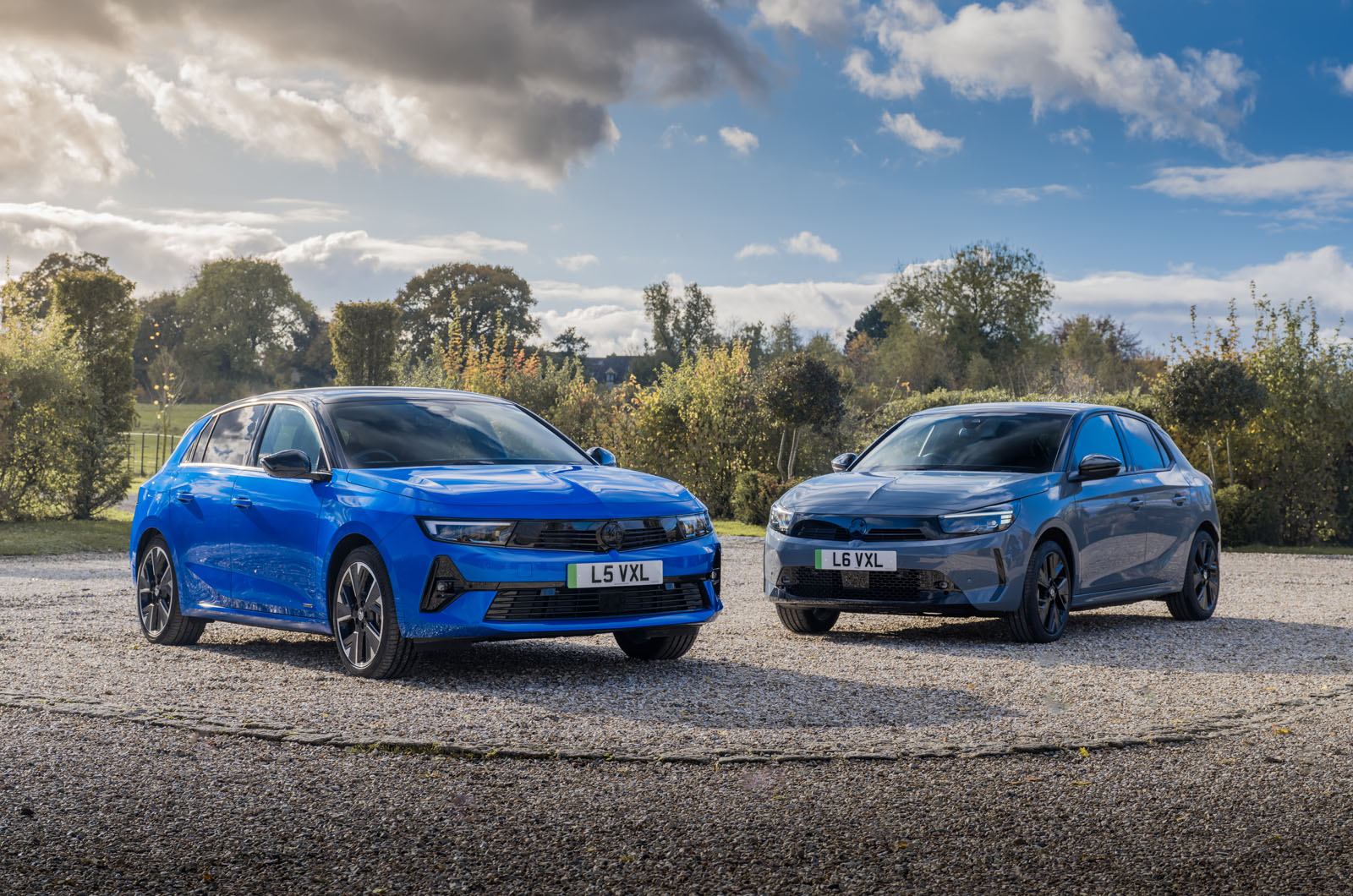Vauxhall is continuing its push to make its electric cars more affordable by slashing the prices of the Astra and Corsa EVs.
The biggest cut is for the range-topping Ultimate-trim version of the Astra Sports Tourer, which has been reduced by £4765 to £40,695. The electric estate’s entry-level trim, Griffin, now starts from £36,195, down by £1000.
Meanwhile, the Astra Electric hatchback has been discounted by up to £3865, with the Ultimate trim falling to £39,385. The middle-rung Design and GS versions have been reduced by £2850 and £2905 respectively, while Griffin remains priced from £34,995.
Similarly, the Corsa Electric’s starting price is unchanged, at £26,895 – making it one of the UK’s cheapest electric cars – but the more costly grades have received big reductions. Design and GS are £3400 and £2850 cheaper respectively, while range-topping Ultimate has been reduced by £4150.
The cuts come shortly after Vauxhall announced that the new Frontera SUV would be priced identically in petrol and electric form, from £23,495. In April, it also reduced the starting price of the Mokka Electric by £7115 to £29,495.
Vauxhall managing director James Taylor recently told Autocar that “optics” were a key issue in the battle to boost electric car sales.
Referring to the public reaction surrounding the top-rung Corsa’s previous price of £38,585, he said: “One of the challenges we have all faced with electric vehicles is that you end up with a comparison between a [74bhp] base-spec car and a [154bhp] long-range [EV].
“It’s a bit like back in the day when you would have Design as the entry to the range and a [sporting] VXR with 150bhp, but you wouldn’t expect those two things to be the same price.
“But obviously in the optics of how people compare and contrast, it does make electric look very expensive. And that’s why we launched the Yes special edition [EV at £26,840].”
Meanwhile, Ford of Britain managing director Lisa Brankin has called for VAT on electric cars to be halved because “we are not seeing customer demand for EVs”.
Brankin added: “We need incentives to drive demand in the consumer market.”

